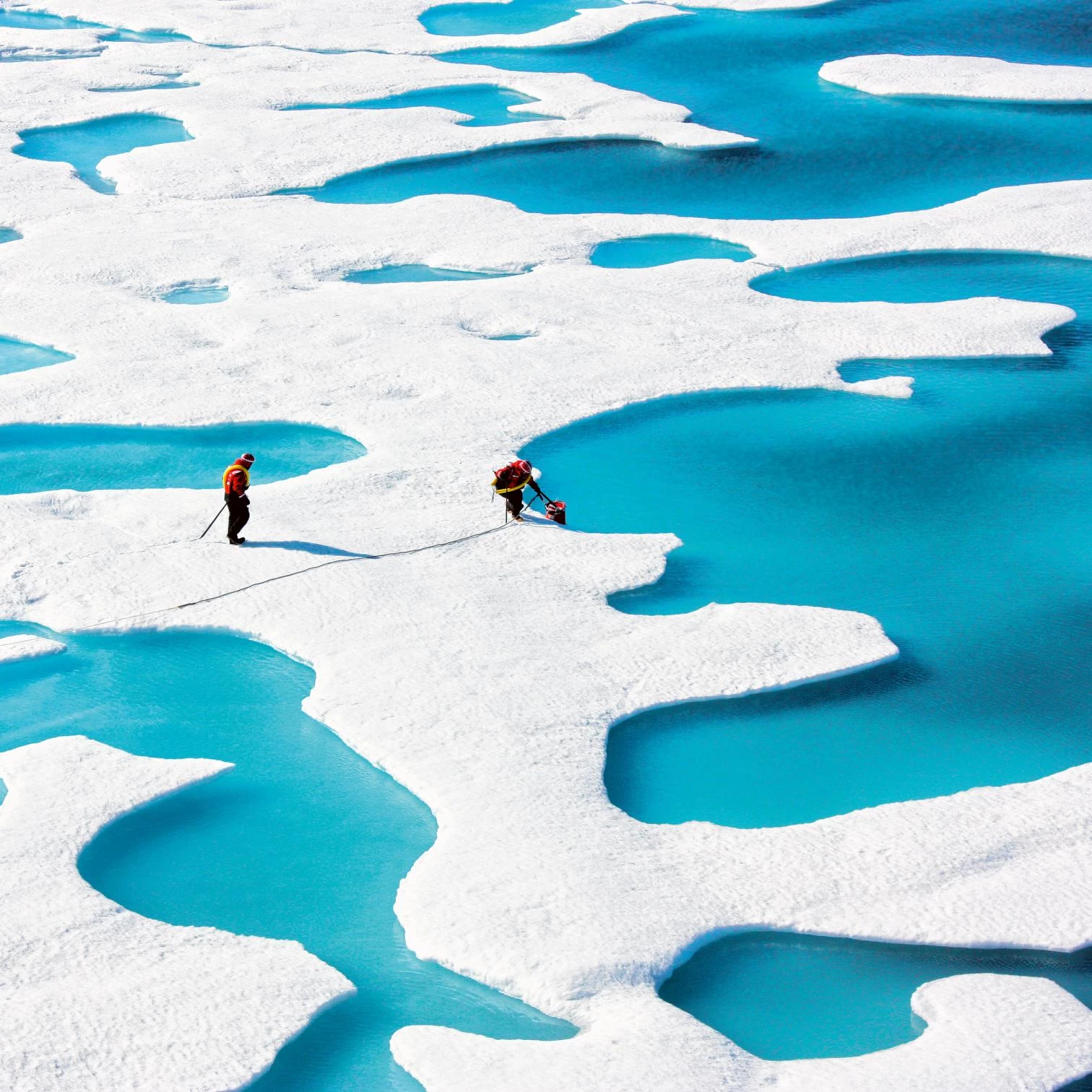
Ice cracks, and so does our future. The polar regions control the planet’s weather system, and the gradual loss of marine or glacial ice is altering significantly the global dynamics of climate. To the lower reflection of solar radiation we must add the greater amount of freshwater in oceans, whose system of currents is affected by changes in temperature or salinity, while the thawing of the permafrost releases methane, which joins the CO2 from the burning of coal, oil, and gas in intensifying the greenhouse effect, in the end the key factor in climate change. The Arctic – even more than the Antarctic, protected by a circumpolar current that isolates it from warm tropical air – is our Achilles heel, and in it the temperature has risen up to 4°C, in contrast with the average 1°C of the planet; the photographs of Tom Hegen document dramatically the fracture and the fusion of its ice sheet.
Both international organizations and scientific meetings warn about the effects of climate change on water, food, and energy resources, with the resulting increase in poverty, migrations, and conflicts, but these are voices that cry out in the wilderness, moving the young students of ‘Fridays for Future’ to demand the corrective measures that adults seem unable to apply. But the political, economic, and media power of energy giants like Exxon Mobil tilt the scale in favor of fossil fuels, and not even the fires, droughts, and floods that devastated many regions last year, from California to Australia – not to mention Chicago, which has experienced temperatures as low as those in parts of Mars –, change the collision course of the climate crisis, with the ever-increasing emissions to an atmosphere that has reached the greatest concentration of CO2 in three million years.
The transition to renewable energies, profitable even without subsidies, is moving forward swiftly, and the experience of other mutations – from horses to cars, from sails to steam, and from landlines to cell phones – suggests that the maximum in the use of fossil fuels (what we know as ‘peak oil’) could be reached sooner than forecasted, alleviating the payment balance of importing countries and altering the geopolitical equilibrium at the expense of producing petro-states. But the current melting pace of polar ice caps was not expected until the end of the century, so the innovations in the field of renewable energy cannot guarantee making it on time to prevent the worst, and many recommend studying the strategies of countries like Israel to face the certainties of an arid Spain. The carbon tax and government action against climate change are essential, but that crack in the ice might never close.







